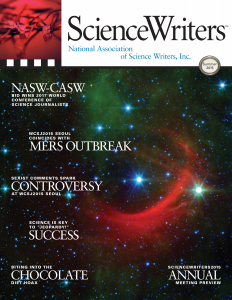When you decide it’s time to write your will or update it (SW, spring 2015), it’s also time to prepare a “letter of instructions.” Ignore the legalese. The letter is an informal document that spells out where you keep important personal papers and what your assets are, among other things.
Usually, you make the letter available to your spouse, one or more of your adult children, your lawyer, or your executor. Keep the letter up to date and accessible.
The letter is worth the time and effort. Without one, your daughter, say, might find it difficult or even impossible to locate your assets when death, a serious illness, or some other kind of crisis leaves you unexpectedly unable to manage your financial affairs.
Reminders for NASW members and other writers. Prepare a letter that alerts your heirs to the financial details of your writing career. In particular, spell out what they’re likely to receive from book publishers, magazines, websites, blogs, and other writing endeavors. Here are some guidelines on the kinds of information to include.
Agents and publishers. Let’s suppose you’re a writer who uses literary agents to negotiate contracts with book publishers. Indicate where you keep agreements with agents and publishers and other related documents. List agents’ and publishers’ names, addresses, telephone numbers, and email addresses.
Name the persons who are entitled to receive royalties after your death and how frequently they can expect to receive them. Who knows? You could be one of those writers whose books generate royalties long after they’re gone. Think Truman Capote or J.D. Salinger.
Be aware of twists and turns in the tax rules for writers and their heirs. For instance, the IRS uses one set of rules when it calculates how much to exact from you and other writers on amounts received as royalties and other payments for books, magazine articles, plays, photographs, or other kinds of creative efforts. But, the IRS invokes other rules that ask for less when those kinds of payments go to writers’ heirs.
The IRS collects income taxes from you and other writers on royalties and the like. You report those amounts on Form 1040’s Schedule C (Profit or Loss From Business).
There’s more paperwork for writers who fill out Schedule C for their income taxes. They also have to pay another kind of tax and complete another form. Writers must shell out for self-employment taxes (Social Security taxes for the self-employed) and calculate those taxes on Schedule SE (Self-Employment Tax).
The tax code includes a relief provision that permits writers to recoup some of their SE taxes, courtesy of write-offs for one-half of such taxes. Line 27 on the front of the 1040 form is where they enter those kinds of deductions.
Like deductions for health-insurance payments by self-employed individuals and funds moved into tax-deferred retirement plans, writers get to claim deductions for SE taxes even though they decide not to itemize on Schedule A, the form they use to claim donations to charities, payments of state income taxes and the like.
Use the letter to remind your heirs that they qualify for a different, more advantageous tax break. Like you, they also have to pay income taxes on royalties. Unlike you, they aren’t dunned for SE taxes on royalties and don’t have to fill out Schedules C and SE. Instead, they complete Schedule E (Supplemental Income and Loss). Schedule E is for reporting, among other things, royalties received by those who inherit or purchase copyrights on books, photos, and other material that they didn’t create.
Also, heirs might overlook contracts for magazine articles that entitle you to payments for reprint rights. Remind them to ask periodically about those payments. Should there be any, heirs report them on Schedule E.
Going in the other direction, use the letter to advise heirs whether you’ve received unearned advances for books that might be uncompleted at your death. In the event heirs need to return those advances, they use Schedule E to deduct repayments to publishers.
Retirement plans. Detail all of your tax-deferred retirement accounts. The possibilities include 401(k)s and individual retirement plans. IRAs come in three flavors: traditional deductible, Roth, or traditional nondeductible.
When you do that, remind heirs of this difference: Like you, heirs have to pay income taxes on their withdrawals from traditional deductible accounts. Like you, heirs generally aren’t taxed on removals from Roth IRAs or the portions of withdrawals from traditional nondeductible accounts that are attributable to nondeductible contributions. These distinctions may often be misunderstood or forgotten.
Help your heirs cope with the IRS after you are no longer around. Disclose where you keep copies of checks and other documents that substantiate the amounts shown as income, deductions, and other Form 1040 figures. What if the IRS disputes those figures and substantiating records are unavailable? What winds up with your heirs will be diminished by assessments for additional taxes, interest charges, and, perhaps, penalties. Ditto for any applicable state taxes.
Get professional help. Those heirs might need help with taxes, contract provisions and other details. Remind them that their first step should be to contact your agents and publishers. Also, it might be advisable to discuss taxes with qualified professionals, like lawyers or CPAs, and intellectual rights with attorneys specializing in that area.
Julian Block is an attorney and author based in Larchmont, N.Y. He has been cited as: “a leading tax professional” (New York Times); “an accomplished writer on taxes” (Wall Street Journal); and “an authority on tax planning” (Financial Planning Magazine). Information about his books is at julianblocktaxexpert.com.
(NASW members can read the rest of the Summer 2015 ScienceWriters by logging into the members area.) Free sample issue. How to join NASW.




